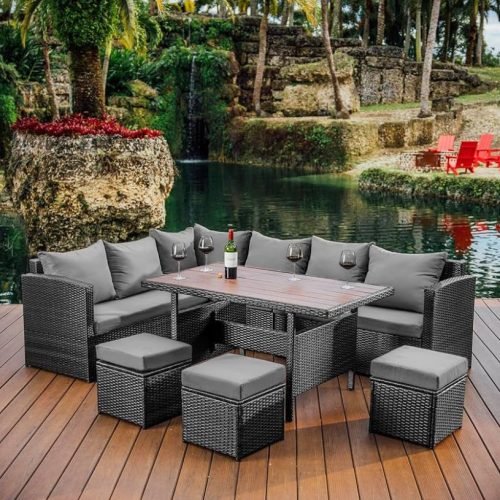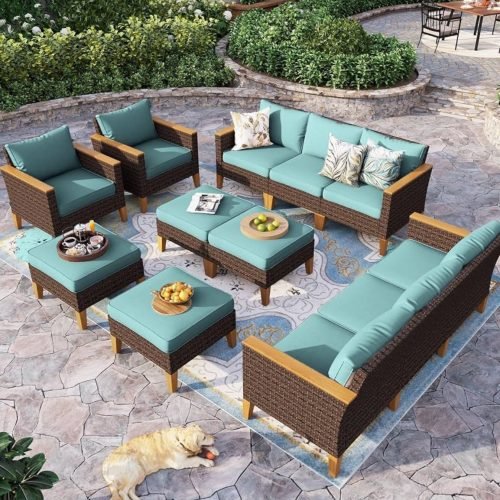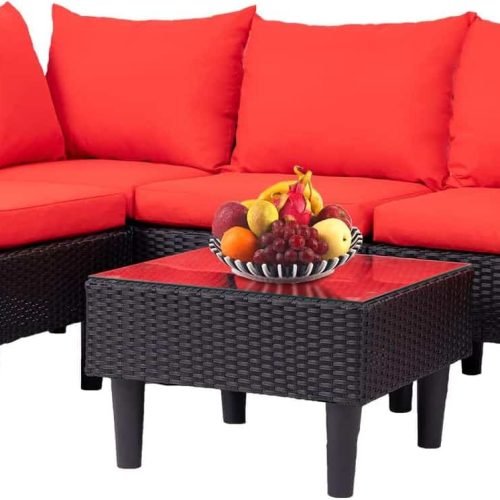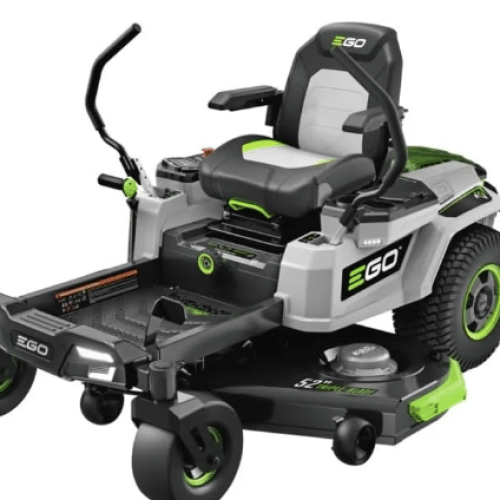Hey guys its JV Charles. Did you know dwarf raspberry varieties like ‘Ruby Beauty’ and ‘Yummy’ are great for patio and balcony gardens? These breakthroughs in container-friendly growing have opened new doors for city gardeners. They now can enjoy the sweet taste of fresh raspberries right at home.
Container gardening lets us grow raspberries without big gardens or yards. If you have a small patio, balcony, or even just a windowsill, you can grow your own raspberries. The right varieties and techniques can turn your space into a lush spot for tasty berries. So cool
Key Takeaways
- Dwarf raspberry varieties like ‘Ruby Beauty’ and ‘Yummy’ are perfect for container gardening
- Raspberries can thrive in pots as small as 30cm across, making them ideal for small spaces
- John Innes No. 3 or a peat-free potting mix is recommended for growing raspberries in containers
- Pot-grown raspberries require more frequent watering, especially during the summer months
- Mulching and regular fertilization can help maintain soil health and raspberry productivity
Introduction
Growing raspberry container benefits has many perks over planting them in the ground. You can move potted raspberries to get more sunlight and control the soil for better growth. Plus, their spreading nature is kept in check, perfect for small spaces or patios. I love em!
Choosing the Right Raspberry Varieties for Containers
Look for container friendly raspberries that are compact and bushy for small areas. Great picks include Raspberry Shortcake, Heritage, Red Latham, and Anne. These dwarf raspberry plants do well in pots and don’t need big support systems.
Starting with a few bare root raspberry canes in fall can give you tasty everbearing raspberry cultivars for three years. Raspberries in pots need a big pot and regular watering when they’re making fruit. But, the hard work pays off. Dwarf varieties last longer in pots, making them great for container gardens.
“Raspberries can be grown successfully in pots, with modern compact varieties being easier to manage.”-JV Charles, Founder Garden Josiah
All raspberry varieties can be grown in containers, giving gardeners many choices. Whether you like fall-bearing or everbearing types, there’s a container friendly raspberry for your patio or balcony.
Container Gardening Raspberries: Getting Started
Starting your raspberry container garden means picking the right pot size. Raspberries need wide and deep containers, at least 16 inches in diameter. This size supports their roots and growth. Half-barrels or large grow bags work great too. Make sure your pot has good drainage to avoid waterlogged soil, which harms raspberries.
Preparing the Soil Mix
Raspberries do well in slightly acidic soil (pH 6.0-6.2) that’s rich in nutrients. Add compost, aged manure, or peat moss to the soil. This step is key for giving your raspberries the right nutrients and moisture.
| Raspberry Variety | Plant Size | Fruit Color | Fruiting Season |
|---|---|---|---|
| Raspberry Shortcake | 2-3 feet | Red | Midsummer |
| Heritage Raspberry Bush | Varies | Red | Everbearing |
| Red Latham | Up to 6 feet | Red | Summer-bearing |
| Anne | Varies | Pale Yellow | Everbearing |
| Glencoe Purple Thornless Floricane Raspberry | Less than 3 feet | Purple | Summer-bearing |
Choosing the right container size and preparing the soil with the correct mix sets you up for a great raspberry harvest. You can enjoy this in your backyard or on your patio.
Planting Raspberries in Containers
Planting raspberries in containers can bring a touch of homegrown flavor to your patio or balcony. You can use either bare-root canes or potted transplants. This method is easy and very rewarding.
Bare-Root vs. Potted Plants
Bare-root raspberry canes might look simple at first, but they grow well in containers. For each 16-inch container, plant one cane. Potted raspberry plants are also easy to transplant. Just make sure to plant the root ball at the same depth as before.
Transplanting Techniques
- Start by filling the container with a mix that drains well and is full of nutrients.
- Loosen the root ball of the potted plant and put it in the container. Make sure the top of the root ball is even with the soil.
- For bare-root canes, dig a hole that’s a bit bigger than the roots. Put the cane in the middle, spreading the roots out.
- Fill the container with soil, pressing it down gently to get rid of air pockets.
- Add stakes or trellises to help the plant grow stable.
- Put mulch on top to keep the soil moist and stop weeds from growing.
By following these steps, your raspberry plants will do great. You’ll get lots of raspberries, whether you’re planting bare-root raspberries, potted raspberry transplanting, or using the container raspberry planting method.
Container Raspberry Growing Conditions
Growing raspberries in containers requires the right conditions for success. Let’s look at the key factors for healthy, productive plants in your garden.
Sunlight Requirements
Raspberries love full sun, needing 6-8 hours of sunlight each day for the best fruit production. Raspberry sunlight needs are key for their health and growth. Make sure your container raspberries get enough raspberry sunlight needs. You know the needs? LOL
Watering and Fertilizing
Keeping the soil moist is vital for watering potted raspberries. Water them 2-3 times a week, or more in hot weather. Use a balanced, organic fertilizer when planting and a liquid kelp fertilizer later to fertilize container raspberries.
| Raspberry Growing Condition | Requirement |
|---|---|
| Sunlight | 6-8 hours of direct sunlight per day |
| Watering | 2-3 times per week, or more during dry spells |
| Fertilizing | Balanced, organic fertilizer at planting; liquid kelp during growing season |
Give your container raspberries the right raspberry sunlight needs, consistent watering potted raspberries, and good fertilizing container raspberries. This way, they’ll grow well and give you a big harvest. Yummy.
Pruning and Maintenance
Proper pruning is key for the health and productivity of raspberry plants in containers. In spring, cut away any damaged or unhealthy canes to encourage new growth. Keeping the plants’ shape and size right is important during the summer.
Spring Pruning
When spring arrives, check your raspberry container plants closely. Remove any canes that look damaged, sick, or don’t produce much. This helps new, healthy growth happen. Strong growth you wont believe!
Summer Pruning
During the summer, watch your raspberry plants and trim back any canes that grow too much. This keeps the plants looking good and big, making sure they make lots of berries.
Fall Cleanup
Fall is the busiest time for pruning potted raspberries. After you’ve picked the last berries, cut all the fruited canes down to the ground. Then, shorten the healthy canes to about 4-5 feet tall. This gets the plants ready for winter and prepares them for a great next season.
By doing these seasonal raspberry maintenance steps, your container raspberries will stay healthy and give you lots of berries. You’ll be ready for a big fall cleanup for potted raspberries.
Best Raspberry Varieties for Containers
For growing raspberries in containers, we focus on compact, bush-type cultivars. These are perfect for small spaces. Raspberry Shortcake is a great choice, being thornless with a bushy shape. Heritage is another good option, producing lots of red raspberries. Red Latham is self-pollinating and Anne is sweet with a pale yellow color.
The Glencoe Purple Thornless Floricane Raspberry is also a favorite. It has a lovely purple color and tastes great. These varieties are perfect for containers, giving you a big harvest in a small space.
| Variety | Characteristics |
|---|---|
| Raspberry Shortcake | Thornless, rounded, bushy shape |
| Heritage | Prolific everbearing red raspberry |
| Red Latham | Self-pollinating, summer-bearing |
| Anne | Sweet, pale yellow everbearing |
| Glencoe Purple Thornless Floricane Raspberry | Lovely purple color, excellent flavor |
Choosing the right raspberry varieties for containers means picking compact, bush-type cultivars. These varieties are great for small gardens or patios. They ensure a big harvest in limited space.

Pest and Disease Management
Raspberries in containers face pests and diseases. Knowing how to handle these issues organically is key for a healthy crop.
Common Pests and Diseases
Common pests include aphids, cane borers, and Japanese beetles. These pests harm plants by clustering, tunneling, or eating the flowers and berries.
Diseases like anthracnose and Botrytis fruit rot can also affect raspberries. They cause leaves to turn color, create sunken spots on fruit, or kill canes.
Organic Control Methods
- Use organic sprays like Neem Bliss neem oil and Monterey BT Caterpillar Killer to fight pests.
- Keep your plants clean by pruning and removing infected parts to prevent pests and diseases.
- Apply organic fungicides like Monterey Horticultural Oil to fight fungal diseases.
- Watch your plants closely and fix problems quickly to stop pests and diseases from spreading.
With these organic methods, you can keep pests and diseases under control in your container-grown raspberries.
“Maintaining good sanitation and cultural practices is key to preventing and controlling pests and diseases in your container-grown raspberry patch.” – JV Charles, Founder Garden Josiah
Overwintering Container Raspberries
As the cooler months come, it’s key to take good care of your container-grown raspberries. This ensures they make it through the winter and are ready for the next growing season. By taking a few easy steps, we can keep our potted raspberries safe and set them up for a great harvest next year.
In areas with cold winters in Zones 4-7, move your raspberry containers to an unheated garage, shed, or a protected spot. This protects the roots from freezing temperatures and damage. For Zones 7-10, you might keep the pots outside. Just check the soil often and water when needed to keep the plants alive during their sleep.
When keeping raspberries through the winter, cut back on watering. Just give the soil enough moisture to stay even, as too much can cause root rot. Once spring comes and the frost is gone, move the containers back outside. Then, start regular care and upkeep again.
Pruning is crucial for overwintering raspberries in containers. In late fall, shorten the green canes to about 4-5 feet tall, and remove any dead or damaged ones. This helps the plants focus on growing strong and healthy for next year’s fruit.
By taking these steps to protect and care for your container raspberries, you can help them get through the winter. This way, you’ll have a lot of fresh, juicy raspberries to enjoy next year.
container gardening raspberries
Growing raspberries in containers is a great way to have fresh berries at home, even with little space. By picking the right varieties, preparing the soil, and caring for them, gardeners can get a lot of raspberries in containers.
Container-grown raspberries are perfect for city gardens and small spaces. They let you control the growing conditions, keep pests and diseases away, and move the plants easily. These plants are super productive and can give you raspberries for many years.
Selecting the Ideal Container
The size of the pot is key for growing raspberries in containers. Experts say you need a pot that’s at least 10 liters big (about 30 cm wide). A wide, shallow pot is best because raspberry roots are shallow.
Good drainage is a must to prevent waterlogging, which raspberries don’t like. Aim for a mix of 80% all-purpose and 20% ericaceous (acid-loving) potting mix for the right pH level.
Caring for Container-Grown Raspberries
- Provide at least 6 hours of direct sunlight per day.
- Water regularly and use a balanced, high-potassium fertilizer to encourage flowering and fruiting.
- Prune the raspberry canes regularly to control the plant’s size and shape, and improve fruit quality.
- Consider companion planting with strawberries, as the two can thrive together in a large container.
With the right growing conditions, raspberries can be a rewarding and productive addition to any container garden. They’re perfect for city folks or those with limited outdoor space. Container-grown raspberries let you enjoy the fruits of your labor in a delicious way.
Harvesting and Enjoying Your Fresh Raspberries
Growing raspberries in containers lets you enjoy your own fresh, tasty berries. When they turn from pale green to bright red, gold, or purple, they’re ready to pick.
Pluck the ripe berries from the canes. Use them right away in pies and jams, or in salads and smoothies. Raspberries add flavor and nutrition to many dishes.
Red raspberry plants can live 10 to 15 years, and black raspberry plants for five to 10 years. Summer-bearing raspberries fruit in June and July. Everbearing raspberries fruit from early August until the first frost, depending on the type and location.
For the best taste and quality, store your homegrown raspberries right. Keep them at a temperature between 32 and 36 degrees Fahrenheit with humidity between 90% to 95%. If not stored well, raspberries spoil fast.
Enjoy your fresh raspberry recipes and the sweet, tangy taste of your homegrown raspberries. Make a refreshing smoothie or a rich raspberry tart. With your own raspberries, the possibilities are endless.
Conclusion
Growing raspberries in containers is easy and great for gardeners at all levels. It lets you enjoy fresh, homegrown berries even in small spaces. By picking the right raspberry varieties, giving them the right conditions, and keeping them well, you can grow tasty raspberries in pots or planters.
Container-grown raspberries are perfect for urban, small-space, and balcony gardens. You can control the soil, keep pests and diseases away, and move the plants easily. So, even with a small patio, balcony, or backyard, you can enjoy the benefits of growing raspberries in pots.
With the right container, soil mix, and care, you’ll have a steady supply of juicy raspberries all season. This brings the fresh taste of homegrown berries right to your table. Let’s start our container raspberry gardening journey and enjoy growing these delicious berries in our own spaces.
FAQ
What are the benefits of growing raspberries in containers?
Growing raspberries in containers lets you control the soil and nutrients. It also protects them from pests and diseases. Plus, you can enjoy fresh raspberries in small spaces like balconies or patios.
You can move the containers to get more sunlight. And, the plants won’t spread too much.
What are some good raspberry varieties for growing in containers?
Choose compact, bush-type raspberries for containers. Good options include Raspberry Shortcake, Heritage, Red Latham, and Anne. These varieties do well in pots and don’t need a lot of support.
How do I prepare the soil for growing raspberries in containers?
For raspberry containers, use a slightly acidic soil mix (pH 6.0-6.2). Add compost, aged manure, or peat moss for nutrients.
Should I plant bare-root canes or potted plants in my raspberry containers?
You can plant raspberries as bare-root canes or potted plants. Bare-root canes are a good choice if you have limited space. They establish well in containers.
Potted plants are also an option. Make sure to plant them at the same depth as the original pot.
How much sunlight and water do container-grown raspberries need?
Raspberries need full sun for best fruit production, about 6-8 hours a day. They also need consistent moisture, watering 2-3 times a week. More often during dry spells.
How do I prune and maintain my container-grown raspberries?
Pruning is key for healthy, productive raspberries. In spring, cut out any damaged or unhealthy canes. Keep the plants tidy during the growing season with summer pruning.
In fall, do the most pruning. Cut back fruited canes to the ground and trim the rest to 4-5 feet tall.
How can I protect my container-grown raspberries from pests and diseases?
Watch out for pests like aphids, cane borers, and fruitworms. Also, diseases such as anthracnose and Botrytis fruit rot. Use organic products like Neem Bliss neem oil and Monterey BT Caterpillar Killer to protect them.
How do I overwinter my container-grown raspberries?
Overwinter your raspberries in a cold place, like an unheated garage. Water them just enough to keep them alive. Move them back to a sunny spot in spring when it’s safe.






